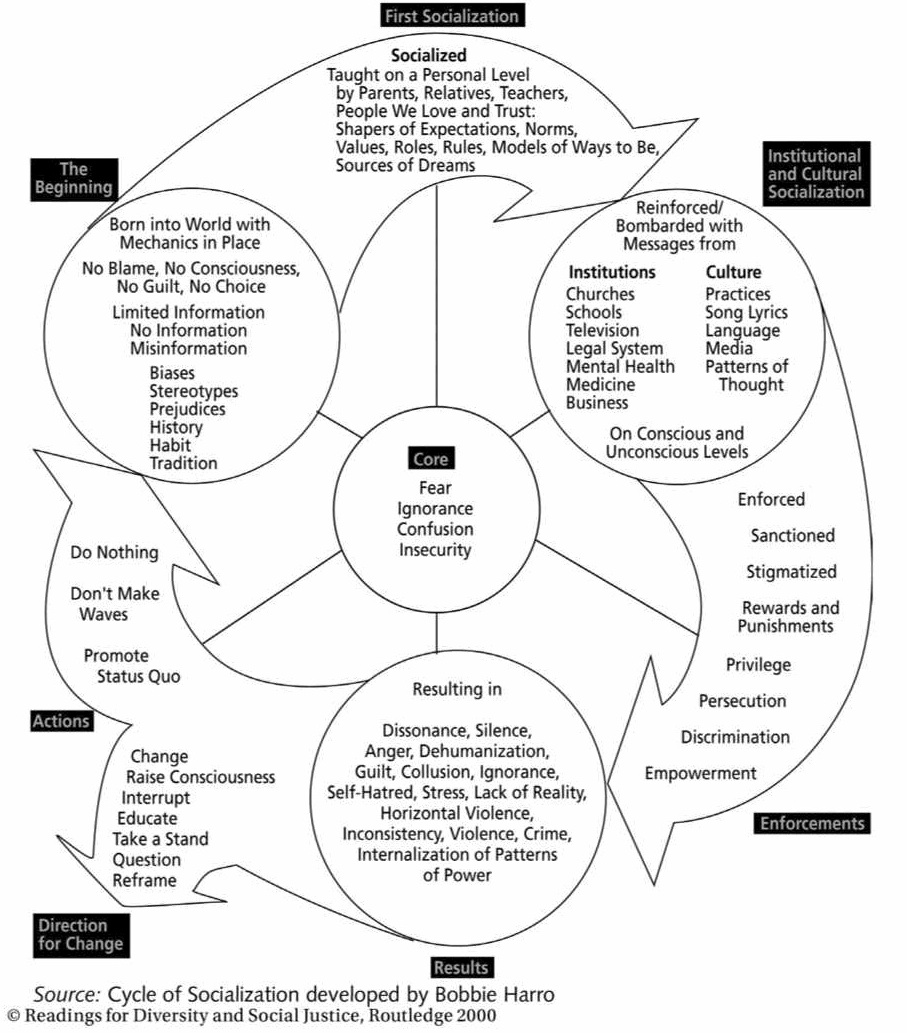
Harro argues that we are all born into a set of “social identities” which are neutral in themselves, but “predispose us to unequal roles in the dynamic system of oppression.” These roles are variously stratified in society, with the highest position reserved for heterosexual white men. The process by which these roles are assigned is pervasive, circular, self-perpetuating, and often invisible. (15)
Members of dominant or agent groups are stratified higher and treated as the cultural norm, while the rest of society is classed into subordinate or target groups (17). The cycle of socialization is a somewhat complicated diagram, but a flattened version of it looks like this:
- Beginning: born “innocent” into our identities.
- 1st socialization: socialized by parents, relatives, and teachers
- Institutional/cultural socialization: socialized by church, school, media, etc.
- Enforcement: lifelong process where dominant groups are privileged and subordinate groups are sanctioned (16)
Harro’s argument comports with my experience, and as a reader living in 2018 I find it to be a review of information I have already internalized. I do find it interesting that Harro repeatedly makes it a point to say that people born into dominant groups should not feel guilt, and that “if our motivation [to make change] is guilt, we are doomed to fail” (20).
I agree with Harro’s general point that guilt is an unproductive emotion, and we are much more powerful if we can accurately assess inequality without bringing guilt into it. But I also think that guilt is a normal human response that can stir people to action, even if we should move past those knee-jerk feelings at some point. I worry that a lot of people from dominant groups will read Harro’s article and only internalize the affirmation not to feel guilty, without being moved to change the system.
Harro, Bobbie. “The Cycle of Socialization.” Readings for Diversity and Social Justice, 3rd ed., edited by Maurianne Adams, et al., Routledge, 2000, 15–21.
Leave a comment